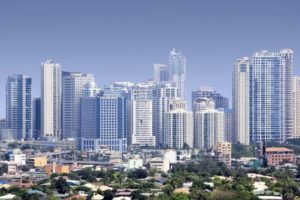World
Immigration weekly update: September 12, 2024

Immigration news update for all regions
Americas
Canada: Canada introduces temporary policy for Provincial Nominee Program applicants
The new policy enables eligible foreign nationals aiming for permanent residency through a Provincial Nominee Program to obtain an open work permit more swiftly.
To qualify, foreign nationals must have a job offer, a valid work permit, or have held a valid work permit which has expired as of May 7. Additionally, they need a support letter from the province or territory they live in, detailing their inclusion in an Expression of Interest pool or another application inventory process.
This temporary policy, that will expire on December 31, allows foreign nationals to start working sooner during the nomination and permanent residence process. Previously, applicants had to submit a permanent residence application and receive a nomination from the province or territory before they could qualify for an open work permit.
This summary was prepared using information from the Government of Canada
Canada has concluded the interim public policy that permitted visitors to seek work permits while remaining in the country
The Immigration, Refugees and Citizenship Canada (IRCC) has discontinued a provisional public policy which previously permitted visitors to apply for work permits within Canada.
Established in August 2020, the policy aimed to assist visitors who were stuck in the country due to travel restrictions from the COVID-19 pandemic. It allowed them to seek work permits without exiting Canada. Moreover, it enabled foreign nationals who had a work permit within the last year but had since switched to a visitor status in Canada, to legally seek employment while their new work permit applications were pending.
Originally intended to expire on February 28, 2025, the IRCC has decided to terminate the policy earlier. This decision is part of a broader strategy to adjust the number of temporary residents and maintain the immigration system’s integrity. The IRCC has recognized instances of the policy’s misuse, where it was exploited to encourage unauthorized work in Canada.
Applications filed before August 28, 2024, under this policy will still be processed by the IRCC.
This summary was prepared using information from the Government of Canada
United States: EB-4 category reached annual limit
The State Department, in close cooperation with U.S. Citizenship and Immigration Services, is delighted to announce that all available visas in the Employment-Based Fourth Preference (EB-4) category for the fiscal year 2024 have been issued. This maximization of visas supports legitimate travel for a diverse group of special immigrants, including religious workers, special immigrant juveniles, certain U.S. government employees, retirees from international organizations, and employees of international broadcasting organizations, among others.
The Immigration and Nationality Act (INA) sets a cap on the number of employment-based preference immigrant visas that can be issued each fiscal year. Specifically, INA 203(b)(4) stipulates that the annual limit for EB-4 visas is 7.1 percent of the global employment limit.
As all EB-4 visas for FY 2024 have been allocated, embassies and consulates will not be able to issue visas in these categories for the rest of the fiscal year. The annual limits will reset with the beginning of the new fiscal year (FY 2025) on October 1, 2024. At that time, embassies and consulates can resume issuing immigrant visas in these categories to eligible applicants.
This summary was prepared using information from the U.S. Department of State – Bureau of Consular Affairs
Disclaimer: The above information is provided for general information purposes only and should not be construed as legal advice. If you have any further inquiries regarding the applicability of this information, please contact Roberta Carnaccini (Global Director of Immigration).
Asia-Pacific
Philippines: New Officer-in-Charge (OIC) of the Bureau of Immigration (BI)
The Department of Justice (DOJ) appointed the current Deputy Commissioner Joel Anthony M. Viado as a new Officer-in-Charge (OIC) of the Bureau of Immigration (BI), effective immediately and remain in force until the appointment of a new Commissioner.
This change was a result of the dismissal of the BI Commissioner, Atty. Norman Tansingco, on September 09,2024.
Following this massive change in BI, it is foreseen delays in the submitted applications and expecting changes in the documentation addressed to the Commissioner.
This summary was prepared using information from the Department of Justice (DOJ) Department Order No. 628 dated 10 September 2024.
Disclaimer: The above information is provided for general information purposes only and should not be construed as legal advice. If you have any further inquiries regarding the applicability of this information, please contact Roberta Carnaccini (Global Director of Immigration) and Debra Beynon (Regional Immigration Manager, APAC).
Europe, Middle East and Africa
Lithuania: Residence permits for foreigners wishing to work in Lithuania
Following the amendments to the Law on the Legal Status of Foreigners, Lithuanian companies hiring foreign nationals now face stricter transparency requirements and new restrictions for foreign employees:
- Companies must have the necessary licenses and permits for activities that require foreign employees.
- The company must be engaged in the activity for which the foreigner is invited for at least the past six months.
- A minimum six-month employment contract must be signed with the foreign employee.
- Employers must either pay the foreign national a monthly salary at least equal to the last published average monthly gross salary for the calendar year.
- The foreign national must be employed full-time.
- Requests to change employers can only be submitted after six months from the date of obtaining the current temporary residence permit.
- Employers must not have been penalized for not reporting changes in the foreign national’s data, providing false data, or assisting the foreigner in obtaining immigration documents; or for allowing illegal work, undeclared work, or violations of the procedure for hiring foreigners in the past year; or for providing false data, or illegally obtained or forged documents.
- There must be no serious reason to believe that the company is fictitious or that the foreign nationals may pose a threat of illegal migration.
- If the Migration Department finds that a company intending to employ a foreign national does not meet any of these requirements, it might be prohibited from employing foreign nationals for six months.
A new provision is proposed to allow EU Blue Card holders to perform another job with the same employer without needing permission from the Migration Department. The job can be changed at any time, but the employer must inform the Migration Department about it.
The highly skilled foreigners who lost their jobs or wish to change employers within the first year of employment in Lithuania must apply at the Migration Department for permission to change employers. If the employment is over one year, the highly skilled foreigner would have to notify only the Migration Department about the change of employer.
This summary was prepared using information obtained from our local service partners.
Disclaimer: The above information is provided for general information purposes only and should not be construed as legal advice. If you have any further inquiries regarding the applicability of this information, please contact Roberta Carnaccini (Global Director of Immigration).
We track policy changes in over 120 countries. Find out how we can help you in this short video.










